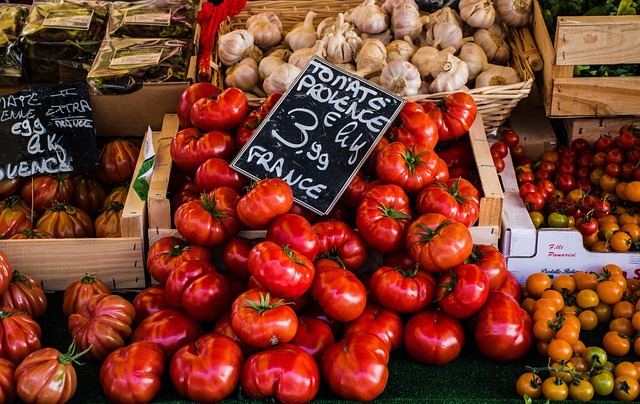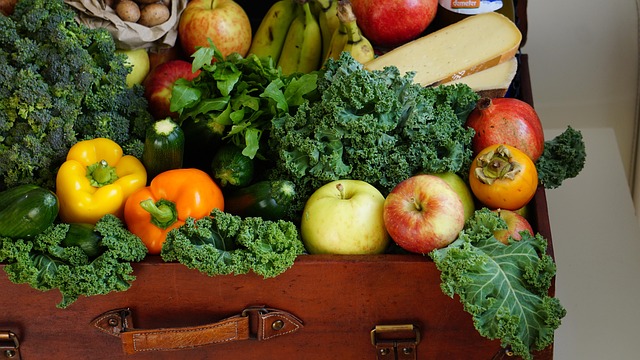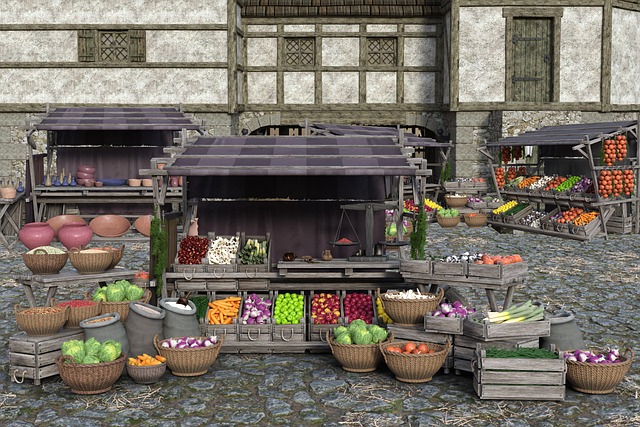Senior meal delivery programs are vital for supporting our aging population, offering nutritious meals tailored to seniors' needs through local food delivery and professional meal preparation services. These initiatives combat isolation and malnutrition risks, enhance nutrition, foster social connections, and preserve culinary heritage. By prioritizing local sourcing and personalized menus, these programs improve quality of life, cater to dietary restrictions, and promote environmental sustainability. Strategic partnerships with local restaurants and chefs ensure fresh, appealing meals, while efficient delivery networks guarantee prompt service. When choosing a program, focus on local food sources, meal prep methods, delivery convenience, and user reviews. Successful programs measured by recipient satisfaction, participation rates, and health improvements, address senior isolation and contribute to community well-being.
Senior meal delivery programs are transforming care for our aging population, addressing nutritional needs and loneliness. This article explores how local food delivery and meal preparation services can significantly improve senior well-being. We delve into the growing need, benefits of personalized meals at home, ensuring nutrition standards, choosing the right program, and building partnerships with local restaurants and chefs. Discover how these initiatives create a supportive tapestry for seniors, enhancing their quality of life.
- Understanding Senior Meal Delivery Programs: Addressing a Growing Need
- Benefits of Local Food Delivery for Seniors
- The Role of Meal Preparation Services in Maintaining Nutrition Standards
- How to Choose the Right Meal Delivery Program for Your Community
- Building Partnerships: Collaborating with Local Restaurants and Chefs
- Measuring Success: Evaluating the Impact of Senior Meal Delivery Programs
Understanding Senior Meal Delivery Programs: Addressing a Growing Need

Senior meal delivery programs have become an increasingly vital service, addressing a growing need for support among our aging population. These initiatives focus on providing nutritious meals prepared with local ingredients, tailored to meet the dietary requirements and preferences of seniors. The concept is simple yet powerful: offering convenient, home-delivered meals that not only satisfy basic nutrition needs but also contribute to a healthier, more independent life for older adults.
By leveraging local food delivery and meal preparation services, these programs ensure that seniors can access fresh, balanced meals without the hassle of grocery shopping or cooking. This support is particularly crucial as mobility and independence can decline with age, leaving many seniors isolated and at risk of malnutrition. Through community-based initiatives and partnerships with local restaurants and chefs, senior meal delivery programs foster social connections, preserve culinary traditions, and enhance the overall quality of life for those who rely on them.
Benefits of Local Food Delivery for Seniors

Senior meal delivery programs that focus on local food delivery and fresh meal preparation offer a multitude of benefits tailored to meet the unique needs of older adults. Firstly, sourcing locally grown foods ensures meals are not only nutritious but also environmentally sustainable, as they reduce carbon footprints associated with long-distance transportation. Local farmers’ markets and producers often provide access to seasonal produce, promoting a diverse range of vitamins and minerals essential for overall health and well-being.
Additionally, meal preparation services designed specifically for seniors can significantly enhance their quality of life. These programs cater to dietary restrictions, cultural preferences, and individual taste, ensuring every meal is enjoyable and tailored to specific nutritional requirements. With local delivery, seniors can also expect fresher, more flavorful meals, enhancing their dining experience and potentially encouraging a more balanced diet.
The Role of Meal Preparation Services in Maintaining Nutrition Standards

Meal preparation services play a pivotal role in ensuring that senior meal delivery programs maintain high nutrition standards. These specialized services, often powered by local food delivery networks, are designed to cater to the unique dietary needs of older adults. Professional chefs and dietitians prepare meals using fresh, locally sourced ingredients, addressing concerns about nutritional value and quality. By implementing tailored menus and catering to specific health conditions, these services ensure that seniors receive well-balanced meals that meet their individual requirements.
In addition, meal preparation enables efficient distribution, allowing for timely delivery right to the doors of senior living facilities or directly to the homes of individuals who are homebound. This not only enhances convenience but also ensures that perishable foods are consumed within optimal time frames, minimizing waste and maximizing nutritional benefits. Local food delivery services further support community engagement by fostering relationships with nearby farmers and producers, promoting sustainable practices and ensuring access to seasonal, high-quality produce.
How to Choose the Right Meal Delivery Program for Your Community

When considering a meal delivery program for your community, it’s crucial to assess its local food delivery capabilities and meal preparation options. Start by evaluating the provider’s ability to source ingredients from local farms or producers, ensuring freshness and supporting regional agriculture. This not only benefits the local economy but also guarantees healthier meals.
Next, look into their meal preparation methods. Opt for programs that cater to specific dietary needs, offer customizable menus, and provide options for both ready-to-eat and frozen meals. Consider the convenience of delivery frequency and scheduling, ensuring it aligns with your or your community’s requirements. Research user reviews to gauge customer satisfaction regarding taste, quality, and overall service, helping you make an informed decision that suits your local food delivery and meal preparation expectations.
Building Partnerships: Collaborating with Local Restaurants and Chefs

Senior meal delivery programs thrive on strategic partnerships with local restaurants and chefs who understand the nuances of preparing meals for seniors. These collaborations are key to ensuring fresh, appealing, and nutritious food options tailored to specific dietary needs and preferences. By leveraging local culinary expertise, programs can offer a diverse menu that caters to cultural diversity within senior communities. Chefs bring their creativity and knowledge of seasonal ingredients, while restaurants provide efficient delivery systems, making it a win-win situation for both parties.
Partnerships also enable the integration of local food delivery networks, optimizing routes and minimizing transportation time. This ensures hot meals reach seniors promptly and safely. Moreover, chefs can offer advice on meal preparation techniques that promote food safety and quality control, enhancing the overall program’s reputation and effectiveness in providing personalized, home-cooked meals for the elderly.
Measuring Success: Evaluating the Impact of Senior Meal Delivery Programs

Measuring success in senior meal delivery programs is paramount to understanding their true impact on the well-being of elderly individuals. Key metrics include satisfaction levels among recipients, indicating whether meals meet dietary needs and preferences. By evaluating taste, variety, and cultural relevance alongside nutritional content, organizations can gauge how effectively they’re addressing hunger and malnutrition.
Additionally, tracking program participation rates, retention, and referral sources sheds light on the reach and appeal of these initiatives. Local food delivery and meal preparation services play a crucial role in fostering social connections and combating isolation among seniors. Monitoring improvements in overall health, access to healthcare, and quality of life provides tangible evidence of the program’s success in enhancing the lives of older adults within the community.
Senior meal delivery programs, by leveraging local food delivery and integrating meal preparation services, play a pivotal role in addressing nutritional needs among the elderly. These initiatives not only ensure seniors receive balanced meals but also foster community engagement and enhance overall well-being. Choosing the right program involves understanding local dynamics and collaborating with restaurants, chefs, and community partners. Regular evaluation is essential to measure success and adapt to evolving requirements, ultimately revolutionizing senior care in today’s digital era.



